 Dawn of the Planet of the Apes
Dawn of the Planet of the Apes
Starring Andy Serkis, Jason Clarke, Gary Oldman and Keri Russell
Directed by Matt Reeves
From 20th Century Fox
Rated PG-13
130 minutes
Serkis captivates in Apes sequel
by Michael Clawson of Terminal Volume
The apes are back, and once again they aren’t so damned and aren’t so dirty.
In fact, the apes are looking pretty snazzy in Matt Reeves’ Dawn of the Planet of the Apes, with their matchy warpaint high in their evergreen fortress in the rugged forests north of San Francisco. This is where we saw them victoriously scamper to at the end of Rise of the Planet of the Apes, the movie that featured the preacher from Footloose, Draco Malfoy and a James Dean puppet called James Franco, yet all anyone could talk about was motion-capture master Andy Serkis and his riveting unseen performance.
Serkis, who had previously played Gollum in the Lord of the Rings movies, returns here doing more motion capture — he gets to wear pajamas to work! — for Caesar, the ape leader who has fled humanity’s rotten grasp to start his own primate civilization in the Sierras. And like his previous endeavor dragging his knuckles, Serkis again steals the show with a nuanced and rare performance that is only seen through the digital surrogate of Caesar, ape emperor. But more on that later.
Dawn wastes no time and begins with immediate exposition: the opening credits reveal that a mutated Alzheimer’s bug is sweeping around the planet in a deadly wave. In a nifty little animation, the infection is shown as a bright orange rash popping up over a spinning globe. And then the orange starts to fade — not because the virus has died off, but because the virus has no one left to kill. Some humans are naturally immune, and they hunker down in the post-apocalypse cities of America. In San Francisco, a decade after the pandemic started, we meet Malcolm (Jason Clarke) and Dreyfuss (Gary Oldman), two sound leaders trying to figure out if a nearby dam might provide their struggling refuge with some power.
And wouldn’t you know it, the dam is in monkey country, where Caesar — a horse-riding, english-speaking, elk-spearing primate that puts those bike-riding bears at Barnum & Baileys to shame — has staked out his own kingdom within the trees and mist. After the humans cross into their borders, Caesar confers with his orangutan elders and his warrior chimps before deciding on a course of action. The decision he makes surprises me: backed by his furry army, he marches to the gates of the human city to announce to a stunned population that they have a “human home” and Caesar and his friends have an “Ape home” and never the two shall meet.
It was pretty much at this point I decided I liked this movie. A lesser film would have had a big action sequence here followed by three identical, yet slightly different, action scenes and then the credits. But Dawn of the Planet of the Apes is less interested in war and gunfights than it is with the examination of two competing societies — one on an upswing, the other crumbling away — as they struggle for meaning in a post-apocalyptic world.
These types of movies are usually filled with obnoxious archetypes, the kind of characters that Walking Dead fills its roster with to move the plots forward in lumbering incoherence. But that’s not the case here. Aside from one meathead (Kirk Acevedo, who’s actually been on Walking Dead), Dawn is filled with smart and understanding human characters. They do things that real humans might actually do. They think. They reason. They encourage each other. They smile. Even Oldman, who turns into a minor villain, is given so much common sense that it defies the genre, which so frequently clings to murderous nutjobs. Clarke’s Malcolm has several important scenes that require him to trust his ape neighbors, including a sequence where he walks into Caesar’s village to petition that they all work together. His wife shares her medicines with the sick apes. And his son swaps comics with a lovable orangutang who has a thirst for reading and knowledge. These are decent people, and likable, too.
The human characters are mirrored in many ways within the ape society. Caesar plays Malcolm’s counterpart; he’s curious and willing to hear out his human visitors. Like Malcolm, Caesar has a son and a wife, and several close advisors, including apes called Ash and Rocket, and rampaging human-hater Koba, who was used as a test subject by humans before the fall. Caesar orders Koba to work peacefully with the humans and Koba points at his scars, “human work,” he says in slow English. Maybelline did a number on this guy, and his actions are hot-headed and cruel, but not without merit.
Of course, the established truce falls apart in a spectacular fashion as the movie requires it, but that doesn’t take away the goodwill that was established earlier in the picture. Caesar believes in the humans, and some of the humans believe in Caesar, and that sets the stage for an epic standoff that is less about man versus ape, and mostly about competing ideologies, specifically peace versus war.
This is a competent and lyrically written action bonanza. It works on paper without a single special effect, yet the special effects make it something exceptional, especially Serkis and the other motion capture actors. The apes have weight, character, presence and momentum. It’s obvious these aren’t just computer models; they have a heavy physicality to their movement. Talk is being thrown around that Serkis should get an Academy Award nomination for a role he’s never seen in. I don’t think we’re there yet, but we’re definitely closer. And the fact that we’re even debating that is a huge testament to the work Serkis has thrown himself into.
Aside from the motion capture, though, Dawn also deserve accolades for its gorgeous set design — from the rusty and overgrown city to the splintery wood deathtrap of the forests — and also its steady cinematography. Reeves did us no favors when he created super-shakycam with Cloverfield, but here he and cinematographer Michael Seresin slow their shots down, and atone for their movie sins, with careful careful camera placement and inventive composition of apes swinging through the trees or a single shot of a rotating tank turret. There are several long-takes, including one with Clark storming through his compound looking for an escape from the invading apes. It’s no Children of Men, but the attention to the nuts and bolts of filmmaking is profoundly evident on the screen.
I must circle back to Serkis before closing out my review. I think he’s figured out how to fix lifeless CGI — a human must inhabit the special effect. It won’t fix a movie’s CGI, but it puts it on the right path to create something memorable. Something like Dawn of the Planet of the Apes.

 Begin Again
Begin Again
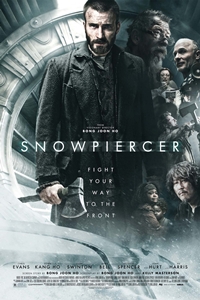 Snowpiercer
Snowpiercer
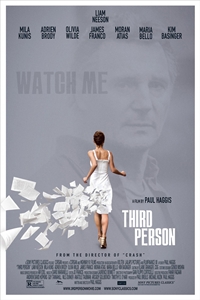 Third Person
Third Person
 Tammy
Tammy
 Earth to Echo
Earth to Echo
 Deliver Us From Evil
Deliver Us From Evil
 presenting youtube videos - into the beginning of the film, but then later, focused on more traditional communication between the lead actors. Was that a conscious decision?
presenting youtube videos - into the beginning of the film, but then later, focused on more traditional communication between the lead actors. Was that a conscious decision?  PFS: Ella Wahlestedt plays Emma, and she joins the three boys on this adventure. What did her character bring to the movie?
PFS: Ella Wahlestedt plays Emma, and she joins the three boys on this adventure. What did her character bring to the movie? 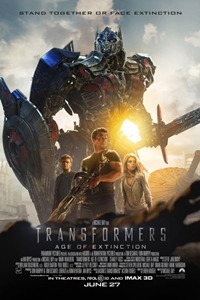 Transformers: Age of Extinction
Transformers: Age of Extinction
 Korengal
Korengal
 Night Moves
Night Moves
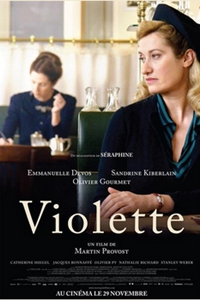 Violette
Violette
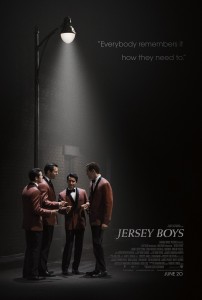 Jersey Boys
Jersey Boys
 The Grand Seduction
The Grand Seduction
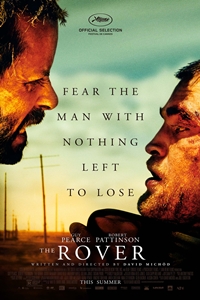 The Rover
The Rover
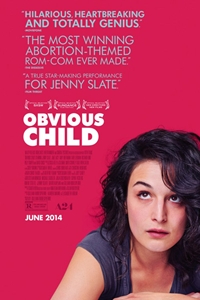 Obvious Child star, director dish
Obvious Child star, director dish
 what we were initially trying to do was just to make a movie. The story, to us, is modern and natural. We aren’t trying to push anyone’s buttons,” Slate says in her gravel-inflected voice. “The situations … some of them haven’t been delved into before in the romantic comedy genre, but we’re trying to make a movie that is thoughtful and funny and satisfying to us.”
what we were initially trying to do was just to make a movie. The story, to us, is modern and natural. We aren’t trying to push anyone’s buttons,” Slate says in her gravel-inflected voice. “The situations … some of them haven’t been delved into before in the romantic comedy genre, but we’re trying to make a movie that is thoughtful and funny and satisfying to us.” The movie was purchased by A24 in the first week of the Sundance Film Festival. “We went in with normal to low expectations,” Robespierre says. “We were just really excited to be at a festival and then one night I was up until 5 in the morning at the [talent agency’s house] negotiating with A24. It’s strange, because we worked very hard and we’re very proud of the movie, but you never know how people will bond to it, or perhaps they won’t. You want them to connect to it. So far it feels like everyone is very excited, and people are connecting with it.”
The movie was purchased by A24 in the first week of the Sundance Film Festival. “We went in with normal to low expectations,” Robespierre says. “We were just really excited to be at a festival and then one night I was up until 5 in the morning at the [talent agency’s house] negotiating with A24. It’s strange, because we worked very hard and we’re very proud of the movie, but you never know how people will bond to it, or perhaps they won’t. You want them to connect to it. So far it feels like everyone is very excited, and people are connecting with it.”







